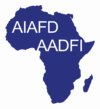Risk Management Forum for African DFIs
Theme: Navigating Risk and Compliance challenges as DFIs embrace digital transformation
- November 10 – 14, 2025
- English & French
- Abidjan, Côte - d’Ivoire

Program Overview
Today’s business environment is characterized by increasing complexities and uncertainties. The challenges resulting from climate change, geopolitical tensions, war, technological disruptions, COVID-19, trade tariff complexities, and numerous other factors are issues that are confronting the business environment. In addition to these challenges, most African economies are facing macroeconomic issues, including inflation and fluctuations in exchange rates. All these factors have enormous risk implications on the lending and operational activities of development finance institutions, even as DFIs are expected to play a counter-cyclical role in difficult times. The Risk Management Forum is designed to discuss traditional and emerging risk issues affecting the operations of DFIs in recent times, to enhance risk management practices within African DFIs, and maintain operational continuity. The delegates will also share insight into the various countries’ risk regulatory frameworks and best practices.
Objectives
- The Forum will examine the conceptual positioning of Risk Management across all lines of defence, the value-adding practices, structures, reporting, and reviews, and the adoption of new ‘aids’, both technological and conceptual, to increase the knowledge and use of metrics to support these practices.
- Facilitating knowledge exchange and peer learning among African DFIs.
- Strengthening collaboration and partnerships on risk-related issues.
Furthermore, the forum will:
- Facilitate ongoing discussions on risk management challenges in DFIs and explore how to effectively link risk management practices with strategy execution to strengthen DFIs.
- Challenge Risk managers to adopt innovative and technological approaches to enhance their risk management, lending, and monitoring programmes. Including strategies and risk approaches that adopt technology, robotics, and the use of AI to improve efficiencies while managing the risk within DFI’s risk acceptable levels.
- Unlock benefits to individual DFIs through the implementation of relevant thematic programmes and,
- Provide a platform for knowledge sharing and engagement for risk management actors in African DFIs in embedding the risk management role, practices, and tools to bring effectiveness in the operations and sustainability of DFIs.
Contents
- Understanding different types of risks:
- Financial risks (credit, market, liquidity)
- Operational risk management (cybersecurity, fraud, etc.).
- Non-financial risk: Environmental and social risk management (climate change, supply chain risks, reputational risk, etc.).
- Risk assessment and measurement
- Risk mitigation strategies
- Regulations and guidelines
- Governance and compliance issue
- Emerging risks: climate change, digital technologies,cybersecurities, geopolitical shifts
- Risk management strategy formulation and execution (Practical)
- Case studies and practical applications
Program Administration
- The AADFI Directorate will administer the workshop.
- AADFI training activities are governed by rules to facilitate maximum learning and foster good relations among participants, instructors, and the Workshop Directorate. Below are the relevant extracts of the regulations for this workshop:
- The nomination of a candidate is deemed to imply their readiness to comply with the advice of the instructors and the Workshop Directorate.
- Participants must promptly and regularly attend all sessions, including group meetings.
Participants’ Expenses and Payment of Fees
- Registration Fees
Please contact AADFI Training Unit at : training@adfi-ci.org / info@adfi-ci.org
2. Registration
The fee does not cover participants’ hotel accommodation, airfare, and other personal expenses.
3. Cancelation Policy
Programme fee paid is non-refundable for non-attendance at the programme. However, it may be used for a future programme with an equivalent registration fee to be held within the next year.
Furthermore, the fee paid will not be refunded or used for future AADFI programme if an institution of a registered participant fails to notify AADFI of withdrawal in writing 20 working days before commencement of the programme.
Nonetheless, the nominating institution reserves the right to replace a registered staff with another staff 20 working days before the start of the training.
AADFI takes measures to ensure that programmes announced are not canceled. However, under circumstances beyond its control, AADFI reserves the right to cancel or reschedule the dates of its programme. In such circumstances, registered participants will be communicated accordingly.
4. Hotel Accommodation
Participants are responsible for their travel, board & lodge, and other personal expenses. Negotiation is ongoing with hotels and negotiated tariffs for board & lodge will be communicated to participants.
Travel Documents and Arrangements
Depending on participant’s status, a visa and international vaccination certificate are required to enter Côte d’Ivoire. For participants from countries that require visas to enter Côte d’Ivoire, the necessary documents and procedures for the processing of entry visas will be provided when the Acceptance Letter is dispatched.
Please note that the AADFI cannot directly procure visas for any prospective applicant. Therefore, participants are advised to forward their nomination forms early so that they can commence necessary travel arrangements in good time.
- International Vaccination
The International Vaccination Certificate (Yellow Fever Vaccination Card) is also required to enter Côte d’Ivoire.
- 00d
- 00h
- 00m
- 00s
Target Group
Programme Fees
Please contact
AADFI Training Unit at : training@adfi-ci.org / info@adfi-ci.org
